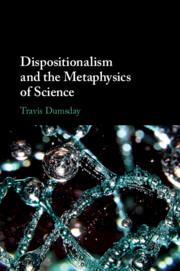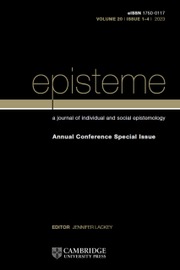Dispositionalism and the Metaphysics of Science
Dispositionalism is the view that causal powers are among the irreducible properties of nature. It has long been among the core competing positions in the metaphysics of laws, but its potential implications for other key debates within metaphysics and the philosophy of science have remained under-explored. Travis Dumsday fills this major gap in the literature by establishing new connections between dispositionalism and such topics as substance ontology, ontic structural realism, material composition, emergentism, natural-kind essentialism, perdurantism, time travel, and spacetime substantivalism. He also puts forward a novel view concerning the precise relationship between causal powers and the fundamental laws of nature. His rich and accessible study will appeal to readers interested in contemporary analytic metaphysics and philosophy of science.
- Addresses the relationship between dispositionalism and a variety of other metaphysical debates including substance ontology, structural realism, material composition and emergentism
- Presents key arguments in a clearly structured and concisely worded form, making this book easy to navigate for readers
- Features extensive engagement with recent philosophical literature, demonstrating how dispositionalism contributes to current debates
Reviews & endorsements
‘… a significant contribution to the debate regarding the prospects of dispositionalism.’ Vassilis Livanios, Metascience
Product details
January 2019Adobe eBook Reader
9781108571890
0 pages
This ISBN is for an eBook version which is distributed on our behalf by a third party.
Table of Contents
- Acknowledgements
- 1. Introduction
- 2. Dispositionalism and the laws of nature
- 3. Dispositionalism and ontic structural realism
- 4. Dispositionalism and material composition
- 5. Dispositionalism and substance ontology
- 6. Dispositionalism and natural-kind essentialism
- 7. Dispositionalism and spacetime
- 8. Dispositionalism and essentially active objects
- 9. Dispositionalism and emergentism
- 10. Conclusion
- Works cited
- Index.



